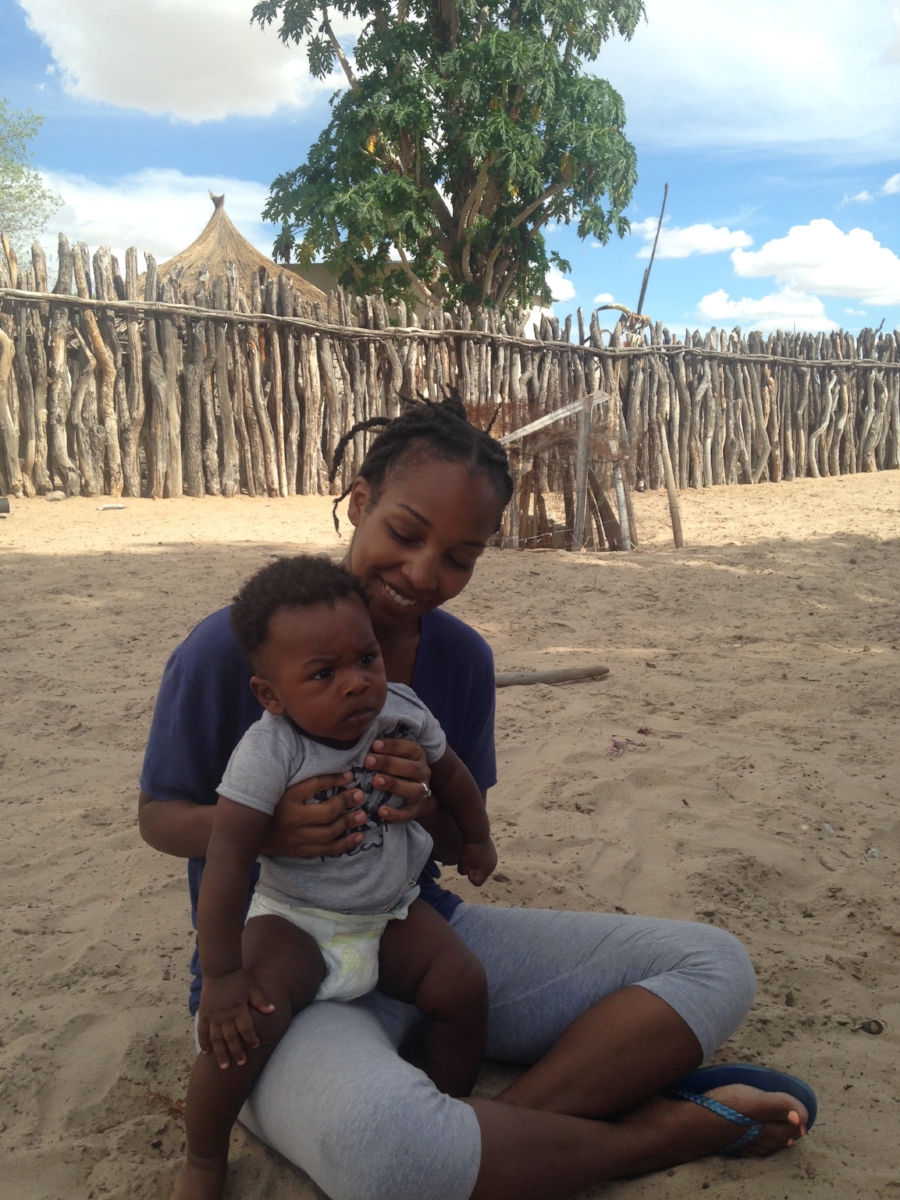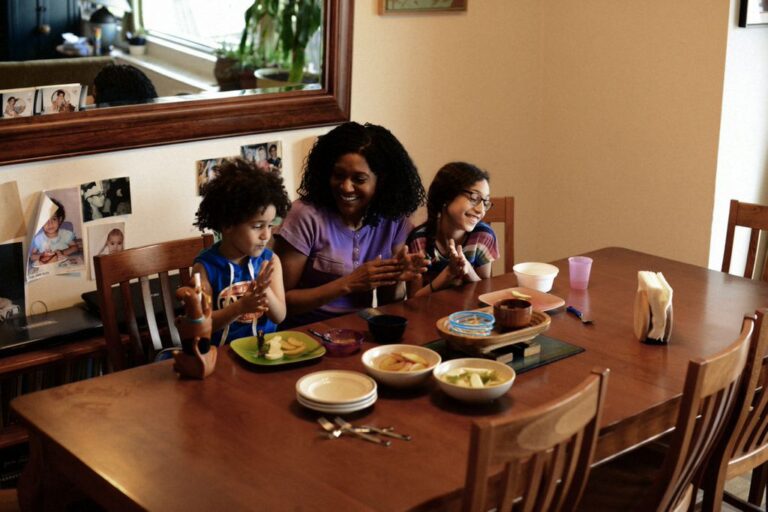The day that I married into my husband’s Namibian tribe was majestic. I truly felt like a queen. My husband and I were constantly serenaded with traditional ululating throughout the entire day. At every turn we were greeted with warm Namibian three-way handshakes, from friends and family congratulating us on our new union.
My husband and new in-laws guided me through the traditional events in the weeks and days leading up to the wedding and the wedding day itself. Four years into living abroad in Namibia, I hung my Black American-ness on a shelf. It was my wedding day and I finally felt like a Namibian Aawambo tribe woman. If even just for that one day.
It wasn’t long after the wedding that my bridal high began to wear off. A sense of loneliness crept in as my family and friends flew back to America. Now it was just me, inducted into this new role. I was no longer under the halo of expat life I had so comfortably lived in. I was now an African-American wife in Namibia.

The magnitude of marrying into a completely different culture hit swiftly. The week after we married we had to return to the church for a Sunday service to formally thank the congregation. I had to speak it in my husband’s mother tongue, which I didn’t mind. I rolled with it in the name of being respectful of my husband’s culture, but standing at a podium speaking to hundreds of parishioners in a foreign country a week after your wedding was quite the reality check.
As a married woman, I noticed visits to my husband’s home village involved more cultural traditions and general advice from the women of my husband’s tribe. I quietly put pressure on myself be more like a Namibian woman. I would watch the women in his village do heavy manual labor. They were always doing something—pounding grain to make flour, cultivating in their fields, peeling the shells off marula nuts to make oil, cooking by the fire. Their work never seemed to end.
I, on the other hand, wasn’t a great cook, and never have been. And when we spent time with my in-laws, there were no counters to prepare food or electricity. I also couldn’t wrap my head around all the physical work that my husband’s female relatives so effortlessly did under the hot Namibian sun. I started to slip into a game of comparison, feeling like I wasn’t woman enough. I wondered if my husband was quietly comparing the local women’s manual labor to my constant sitting under a tree for shade. Was he regretting marrying an American? Did he or they think I was lazy?
Sometimes I felt cornered by my husband’s culture. When I was around my in-laws I was always the only foreigner. As the lone American, I was far removed from the familiar Black American maternal figures I’d grown up around. Sometimes I was inundated by well-meaning but far-flung advice I couldn’t identify with. But as a woman, it’s easy to fuse into whatever all the other women around you are advising.
I remember one visit to my mother-in-law. My son was about 15 months old. She, along with other female relatives, urged me to wean my son from breastfeeding. They felt he was “a big boy now” and needed to give me a break. All of the literature I’d read recommended nursing until he was two. But now, I started to wonder if I should wean.

One Sunday, my husband, son, and I attended my mother-in-law’s church. My son cried terribly. The sea of people across the pews unnerved him. So, he and I spent most of the service outside the building under a tree. After church, my mother-in-law said he cried because we didn’t go to church enough for him to get used to being around crowds. A one-year old!
We don’t go to church because I’m not impressed by the churches available in our town. And because I’m more spiritual than religious. But again, I started to second guess myself. Maybe she had a point. Perhaps my son being around his parents all the time wasn’t sufficient socialization?
Another day my mother-in-law told me my son needed to be lightly spanked. She said we weren’t putting our foot down hard enough with him. Spanking is rampant across Namibia, but it wasn’t how I planned on raising my son.
Then there was the time one of my husband’s aunts couldn’t understand my reasons for staying at home with my son. She made it clear that as an educated married woman, I needed to be working a 9-to-5 job. She had no real concept of stay-at-home mothers. This was because choosing to stay home is rarely a deliberate choice mothers make in their culture. I tried to explain the lack of adequate childcare. I also told her that I was developing a freelance writing career. It all seemed to fall on deaf ears. Her attitude stung and I began to doubt the choices I had made for myself as a first-time mother abroad.
I tried to remain open to the different approaches to life in my husband’s tribe. I knew there were things I could learn from them. Still, a silent battle waged on between my soul and the foreign culture I’d married into.
But living and parenting over 7,000 miles away from home gradually sharpened my inner voice. Being on another continent there were many days where all I had was my own intuition. When my husband was away traveling with work and it was just my son and I at home, I was forced to learn to trust in the process of doing things my way. I learned how to be confident in crafting a life to suit no other woman’s but my own. While not perfect, this reliance on instinct has time and time again gotten me over.
Twenty-four months into motherhood, I am still breastfeeding. I don’t spank my son and my freelance writing career is picking up a little steam. My son still spends the majority of his time with his parents and seems pretty happy. And while I’m not the most domestic person, my husband and I have a nice balance that works for us. Now when we visit my in-laws I still have to field advice, but it doesn’t leave me questioning or comparing myself to anyone else. I am secure in knowing that my essence was always more than enough.
















